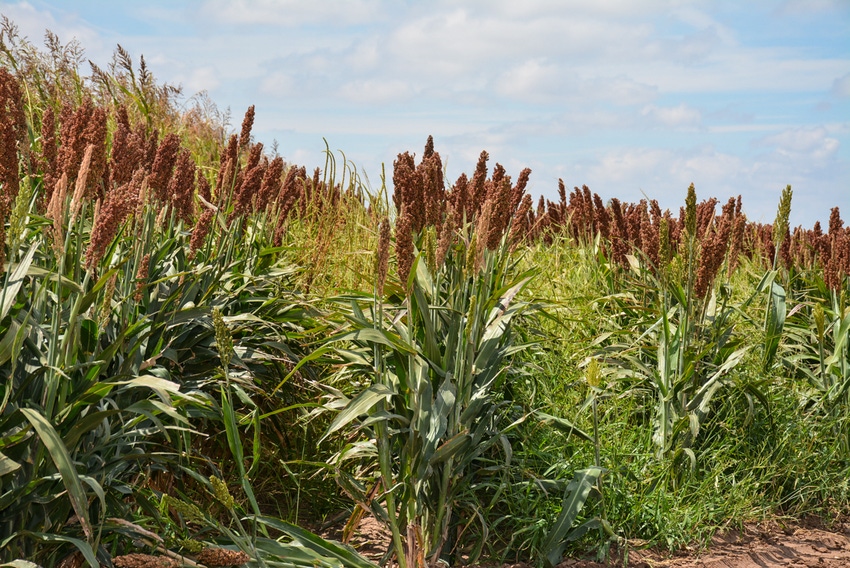
Dr. Ken Obasa has been hired as a Texas A&M AgriLife Extension Service plant pathology specialist in Amarillo and assistant professor in the Texas A&M University department of plant pathology and microbiology.
Obasa brings to his new position previous work with plant pathogens and experience with multiple crop species of cowpea, corn, rice, soybean, turfgrass and sugar beets. His program in Amarillo will address ongoing and emerging disease issues while expanding the High Plains Plant Diagnostic Laboratory to assist growers and agents with plant disease diagnostics.
“I’m excited to work for AgriLife Extension,” he said. “I’ve always liked research, but I enjoy the hands-on aspect that the Extension specialist has and seeing the impact of what I do out in the field. I see producers who have a passion to grow but don’t have all the tools to battle the issues they face. They need help to do what they do best, and that is what I want to do.”
Obasa said since he is new to the region, his priority will be to get to know what fungal, viral and bacterial diseases are affecting the major crops of wheat, corn, sorghum and cotton.
“I want to get a handle on each crop type and the management practices in place,” he said, adding he will work directly with other AgriLife Extension specialists and county agents and Texas A&M AgriLife Research scientists to get up to speed on what producers are battling.
Obasa earned his bachelor’s degree at Ahmadu Bello University in Zaria, Nigeria and his master’s degree at the University of Agriculture in Abeokuta, Nigeria. He earned his doctorate from Kansas State University and worked as a postdoctoral research associate at both Kansas State and the University of Florida.
He spent the past five years researching Rhizoctonia solani, a soilborne fungus with many plant hosts. His research effort was focused on investigating a bacterium he discovered within the fungus, with the goal of understanding how the bacterial association might influence the biology and lifestyle of the fungus, particularly as it relates to disease development in plants infected by the fungus.
His research collaboration included an investigation of alternate pathways that could potentially regulate toxin production and virulence in different strains of fusarium species in crops.
Obasa also worked extensively with turfgrass while at Kansas State University, helping develop and distribute Extension bulletins and fact sheets on yellow patch, rust and large patch, as well as other diseases in zoysiagrass. Additionally, he evaluated spring and fall fungicide applications for management of the large patch disease.
While his primarily program will be aimed at agriculture, Obasa said he will use his knowledge of turfgrasses to also offer any help he can to homeowners in the region.
He is a member of the Genetics Society of America, Crop Science Society of America, the Florida Branch of the American Society for Microbiology and the American Phytopathological Society.
About the Author(s)
You May Also Like




